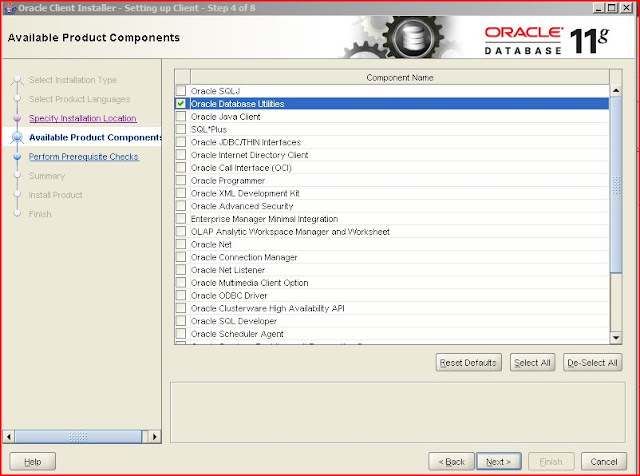http://docs.oracle.com/cd/E23943_01/integration.1111/e10231/adptr_file.htm#CACDFFFB
http://myexperienceswithsoa.blogspot.ch/2011/04/using-sftp-with-oracle-soa.html
http://erikwramner.wordpress.com/2010/02/15/configuring-the-oracle-ftp-adapter-for-sftp-with-ssh-dsa/
On Linux, sftp server runs on
/usr/libexec/openssh/sftp-server
man sftp-server is
http://www.manpagez.com/man/8/sftp-server/
By default it logs only errors, and it runs on port 22
On Linux you must be root to change the log level or the port number (sftp-config)
Logs are in
less /var/log/messages
less /var/log/secure
Here
http://www.cerberusftp.com/download/downloadnow.html download an excellent SFTP server for Windows. You should create a user with rename, delete, create directories privileges.
this is a typical session:
2012/12/06 12:28:00 [1] Incoming connection request on SSH interface 2 at 10.240.11.111
2012/12/06 12:28:00 [1] SSH FTP connection request accepted from 10.56.5.165
2012/12/06 12:28:00 [1] Client Identification: SSH-2.0-J2SSH_Maverick_1.2.6_Oracle Corporation
2012/12/06 12:28:00 [1] Algorithm negotiation complete: Proceeding with key exchange
2012/12/06 12:28:00 [1] Kex: 'diffie-hellman-group1-sha1' Host Key: 'ssh-rsa' C2S : 'aes128-cbc, hmac-md5, none' S2C : 'aes128-cbc, hmac-md5, none'
2012/12/06 12:28:01 [1] DH Key sizes: Server Public '1023', Private '1023', Client Public '1023'
2012/12/06 12:28:01 [1] Authenticating password for user 'soa'
2012/12/06 12:28:01 [1] Native user 'soa' authenticated
2012/12/06 12:28:01 [1] Channel Open: 'session', Sender Channel: 0, Init Window Size: 131070, Max Packet Size: 34000
2012/12/06 12:28:01 [1] Creating local channel: 32
2012/12/06 12:28:01 [1] Channel Request: 'subsystem', Recipient Channel: 32, Subsystem Name: 'sftp', Reply: true
2012/12/06 12:28:01 [1] Client SFTP version: 4
2012/12/06 12:28:01 [1] Real Path for '.'
2012/12/06 12:28:01 [1] Stat: /home/soa/pippo/environments/env-0/ave/tmp
2012/12/06 12:28:01 [1] Request to close channel '32'
2012/12/06 12:28:01 [1] Channel '32' removed
2012/12/06 12:28:11 [1] Disconnect reason: The user disconnected the application
2012/12/06 12:28:11 [1] The client closed the connection
2012/12/06 12:28:11 [1] Connection terminated
2012/12/06 12:28:31 [2] Incoming connection request on SSH interface 2 at 10.240.21.111
2012/12/06 12:28:31 [2] SSH FTP connection request accepted from 10.56.5.165
2012/12/06 12:28:31 [2] Client Identification: SSH-2.0-J2SSH_Maverick_1.2.6_Oracle Corporation
2012/12/06 12:28:31 [2] Algorithm negotiation complete: Proceeding with key exchange
2012/12/06 12:28:31 [2] Kex: 'diffie-hellman-group1-sha1' Host Key: 'ssh-rsa' C2S : 'aes128-cbc, hmac-md5, none' S2C : 'aes128-cbc, hmac-md5, none'
2012/12/06 12:28:31 [2] DH Key sizes: Server Public '1023', Private '1023', Client Public '1024'
2012/12/06 12:28:31 [2] Authenticating password for user 'soa'
2012/12/06 12:28:31 [2] Native user 'soa' authenticated
2012/12/06 12:28:31 [2] Channel Open: 'session', Sender Channel: 0, Init Window Size: 131070, Max Packet Size: 34000
2012/12/06 12:28:31 [2] Creating local channel: 48
2012/12/06 12:28:31 [2] Channel Request: 'subsystem', Recipient Channel: 48, Subsystem Name: 'sftp', Reply: true
2012/12/06 12:28:31 [2] Client SFTP version: 4
2012/12/06 12:28:31 [2] Real Path for '.'
2012/12/06 12:28:31 [2] Stat: /home/soa/pippo/environments/env-0/ave/tmp
2012/12/06 12:28:31 [2] Request to close channel '48'
2012/12/06 12:28:31 [2] Channel '48' removed












